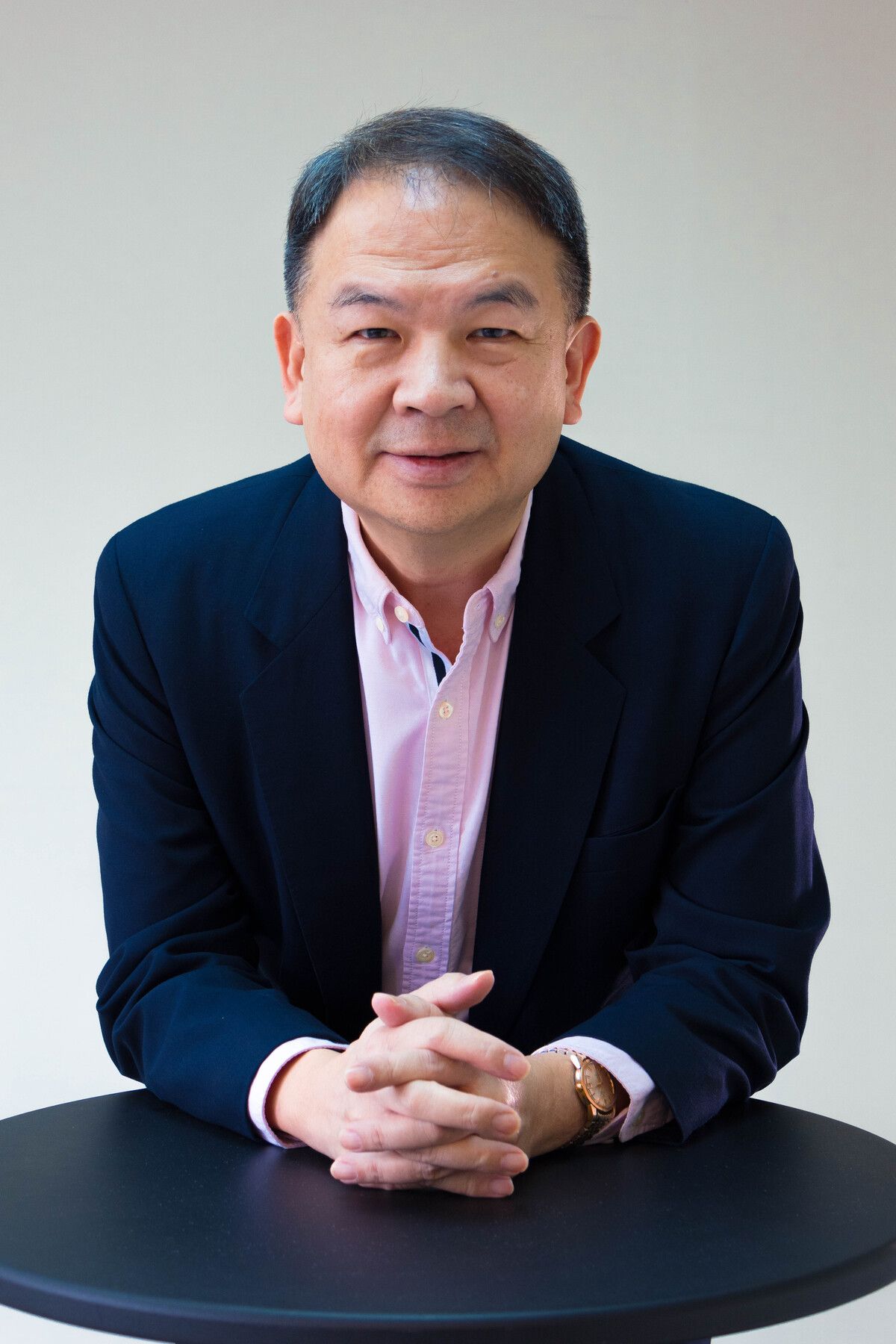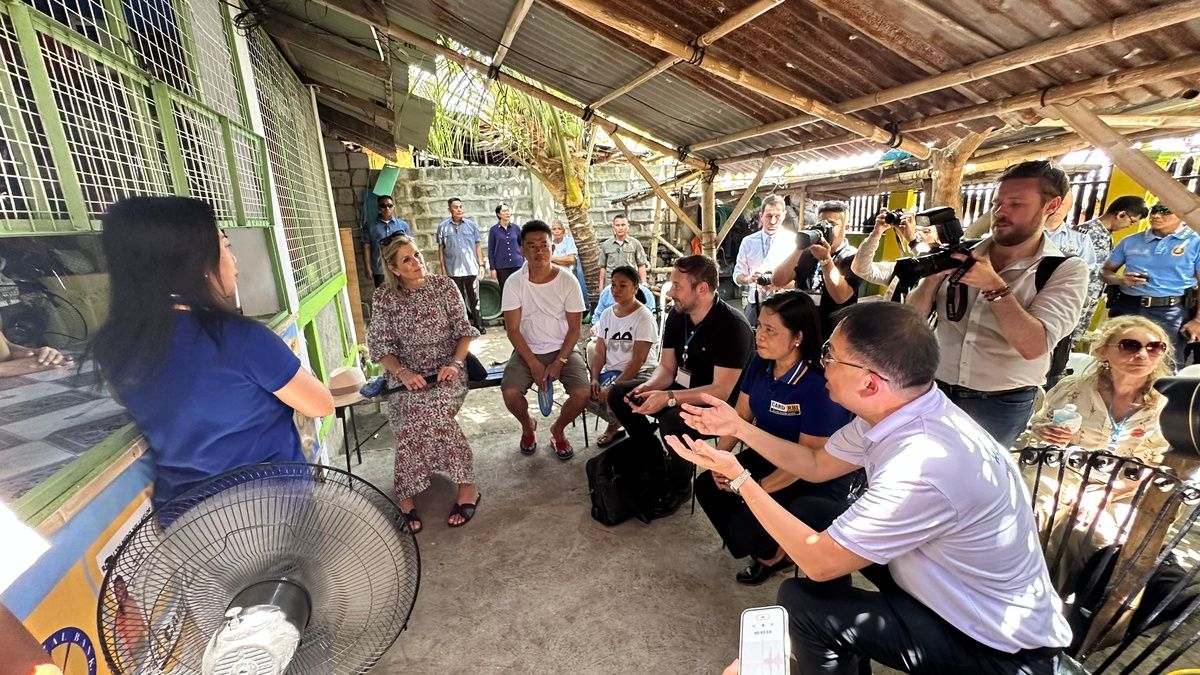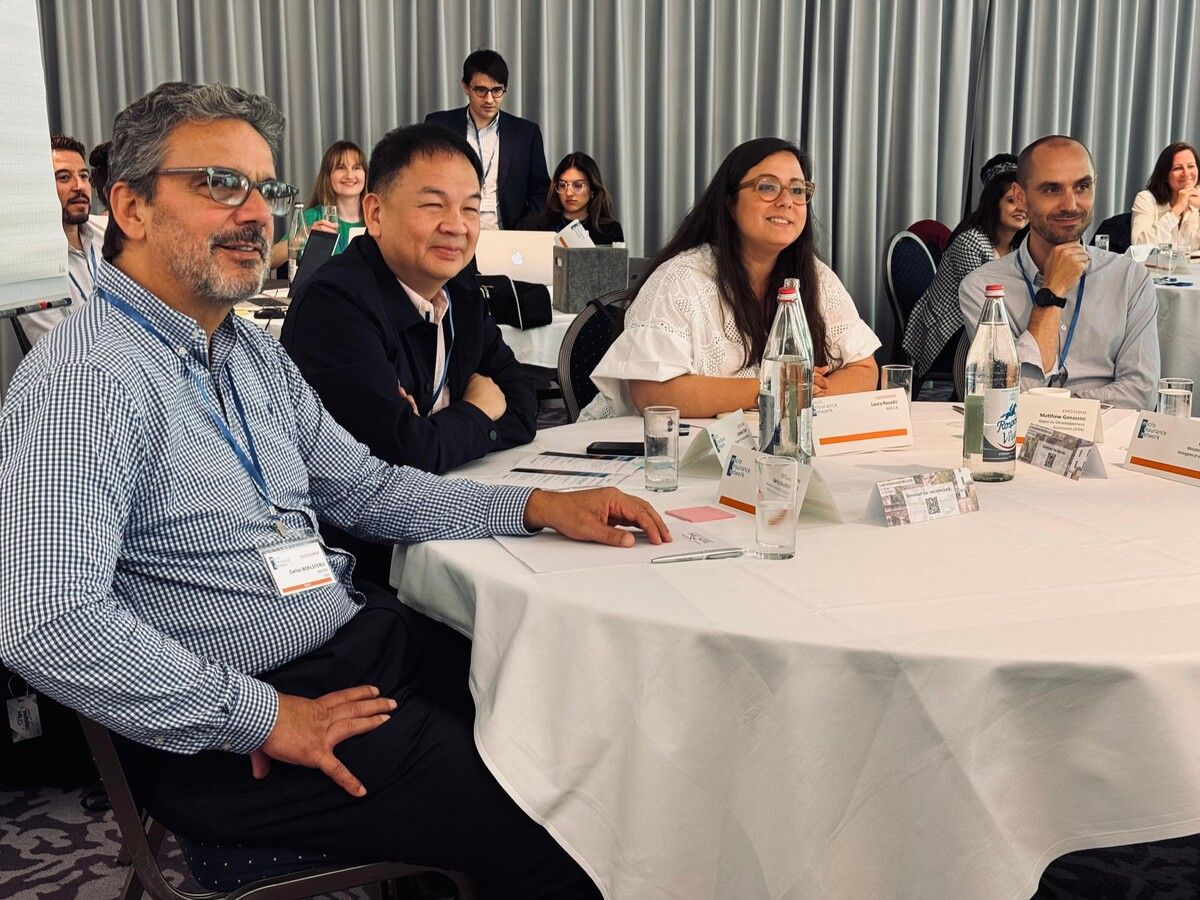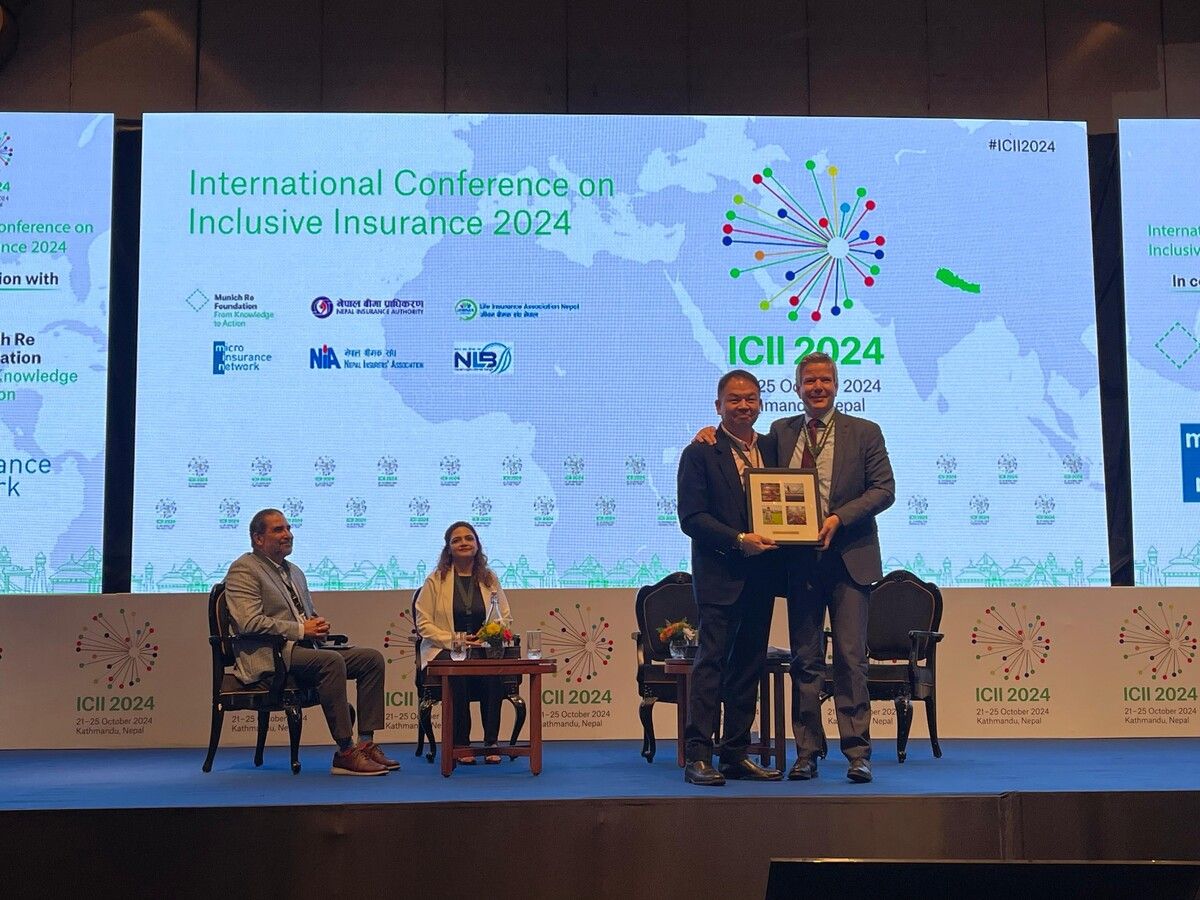By invitation – Lorenzo Chan Jr. and microinsurance: Challenges, triumphs and a vision for the future

Over the last five years, Lorenzo Chan Jr. has served as the Chair of the Microinsurance Network. As his tenure comes to an end this year, the Microinsurance Network (MiN) spoke to Lorenzo at length to learn more about his experience. What barriers had he seen the industry overcome, what challenges had he faced himself and what is his vision for microinsurance. Most importantly, we wanted to find out if he had enjoyed his time as chair.
In 2021, during Chan’s first year as Chair of the Microinsurance Network, the COVID-19 pandemic had already had a significant global impact. The industry faced the same challenges as other organisations and individuals: not being able to meet in person for meetings and events, and a higher use of digital tools to offer, explain, buy and pay for insurance. The pandemic also offered valuable lessons. For Chan, it was clear that insurance was necessary: many more people than before had realised the need for health insurance.
“I think that the pandemic has done more for digitalization than anything I know.”
One of Chan’s other early observations was that digitalisation existed pre-pandemic. However, low levels of trust had limited widespread uptake. What ultimately drove adoption was the prolonged nature of the pandemic: this forced a shift to digital platforms, accelerating digital enrolments, premium payments and claims. For the Network itself, a move to digital ways of working meant that operations could continue – even if Chan often joined calls at unsocial hours.
Chan is well-known – both at home and abroad. In the Philippines, as a microinsurance pioneer. His work has focused on making insurance accessible and affordable for low-income individuals. He introduced “sachet insurance” – simple and low-cost policies tailored to people’s everyday needs – designed to protect millions who previously had no insurance cover. His innovations are based on fast and compassionate claims processing and community partnerships. This has led to over 30 million enrollments by Filipinos to secure themselves against risks and disasters.
Outside of the Philippines, he is recognised both as the Chair of the Microinsurance Network, the first from Asia, and as a global role model. Because of how successful microinsurance has been in the Philippines, he is often sought out to share best practice. And when Chan talks to an audience, he regularly and relentlessly advocates a simple, yet powerful message: empower vulnerable groups, especially women, to close the social protection gap.

Why success is about having the right “mindset”
Although Chan doesn’t want to promote himself, he beams with delight when talking about the formation and growth of microinsurance and mutual benefit associations (MBAs) in the Philippines. What encourages him further is the feedback when the story of Pioneer (a commercial insurer) and CARD MBA’s partnership is shared, and that it is a possible model for others to adopt. For Chan, success in the Philippines can be attributed to the enabling regulatory environment. Regulatory innovation has also led to success elsewhere, such as in Kenya, while mass marketing in Latin America has proliferated inclusive insurance in the region.
Despite pockets of success, Chan acknowledges the failures in the sector. Many of these were due to insufficient preparation or research before launching products. On paper, there may have been a business case, but success requires looking beyond this. Chan believes that a greater purpose, beyond revenue and profit, is crucial to drive a successful model and sustain commitment during challenging times. This comes down to having a different mindset. What sometimes hinders growth is the inability to ask “why not” instead of “why” when facing costs, significant risks, or unusual approaches.
Are people aware of what they are buying?
When talking about what hasn’t worked, it is natural for Chan to explore one of the industry’s biggest missed opportunities – if it even was that. Bundling insurance with telcos was seen by many as a “holy grail”. Loyalty based freemium and premium models, where users would receive insurance cover for airtime top-ups was supposed to lead to an explosion of growth. Millions more were expected to enrol following the initial launch years, leading to significant premiums booked. But this did not happen.
For Chan, this is a good example of why consumer awareness is important. If people are unaware of what they are buying or what comes with a package, they will not appreciate or utilise the product. And without a good understanding of when and how to use insurance or its benefits, consumers may not renew policies. Despite this, Chan feels encouraged. The most successful products have been bundled offerings that combine life, health, accident and non-life coverages. For these to continue succeeding, there might still be a role for telcos to play.
On the future of microinsurance: “Although we've come a long way, we still have a long way to go. Now, where should we go? And how would we know if we have arrived? We would have arrived the day insurance is no longer pushed but bought.” |
“Working for Pioneer by day and you're working for the Network by night”
Recalling his journey leads to Chan offering a thoughtful response. His experience can be considered a case study in progress. Chan’s first foray into microinsurance in 2007-2008 led to engagements with the ILO and CGAP. Encouraged to join the Microinsurance Network by Michael McCord in 2015, he was invited to join the board in 2016. Between 2019 and 2020, he led the Finance, Risk, Audit and Governance committee. It wasn’t long before Chan was approached by senior board members who suggested he consider running for chair.
Since then, Chan has seen several memorable achievements. A new strategic plan and a renewal in funding from the Government of Luxembourg stand out, as does the MiN’s ability to deliver and function for a year without an executive director. This reflected positively on the MiN’s secretariat and on the board. Chan found that while this episode offered many lessons, he was pleased with the collective efforts of different board members who took on additional responsibilities. For him, this was also part of the challenge: balancing his day job with the added inputs the Network demanded of him.

“Such partnerships and collaborations…might not otherwise occur”
Given the added effort this requires, what prompted Chan to devote so much energy to the MiN? For most members, the Network’s unique value is its ability to share knowledge and best practices that are not easily found elsewhere. This has created an environment where members (and sometimes non-members) can connect, collaborate and explore positive outcomes. Chan highlights the Network’s collective generosity of spirit as a powerful driving factor for his efforts.
The MiN’s initial value proposition was to unite individuals passionate about providing insurance to low-income individuals. Over time, this has evolved. Members include donors, multilateral organisations, insurers, reinsurers, brokers and tech companies, among many others. Chan points out that the type of interactions and engagements that happen among this group are what makes the industry special. Bringing together different organisations for greater objectives has led to significant milestones, such as the Global Shield initiative.
On the Network’s continued relevance: “We're still walking on this inclusion journey. But along the way, if we have to change shoes, if we have to adjust outfits, as conditions on the road change, then we must and we should.” |
When thinking about what the Network and the wider industry need to do to remain relevant, Chan has a clear idea. As we continue to provide risk management tools to the underserved, how these products are packaged should be readily adjusted for partners. Regular communication is still necessary to highlight on-the-ground efforts in various parts of the world, as well as to show the convening power of the industry.
One of the Network’s strengths is its Landscape of Microinsurance study, based on a rigorous data collection exercise. Chan sees this as an important activity that should continue. But, over time, beyond accumulating information, the data should be interpreted and further utilised to impart greater awareness of its meaning and implications. Chan accepts that this is often a struggle for other organisations in the space. The financial inclusion gaps are routinely highlighted. However, how this is helping to draw in organisations to take action or invest could benefit from more clarity.

“The day insurance is no longer pushed but bought”
When asked about his thoughts for the future, Chan talks about the progress made so far. Initially focused on affordable, bite-sized insurance for low-income sectors, microinsurance is now “inclusive insurance”. Over time, coverage has extended to natural calamities, with a focus on climate change and food security. The terminology might have changed, but the core purpose of protecting the underserved remains the same.
Chan’s vision for the industry is simple: it comes back to the principles behind financial inclusion and what this means for those who are uninsured or underinsured. Success would mean that people are actively seeking to buy insurance as they would everyday necessities, such as coffee or shampoo or detergent. Chan smiles when considering when this might happen: “If we all work harder, we will see it in our lifetime. If we don't, but the current trajectory continues, the next generation will see it in theirs.”